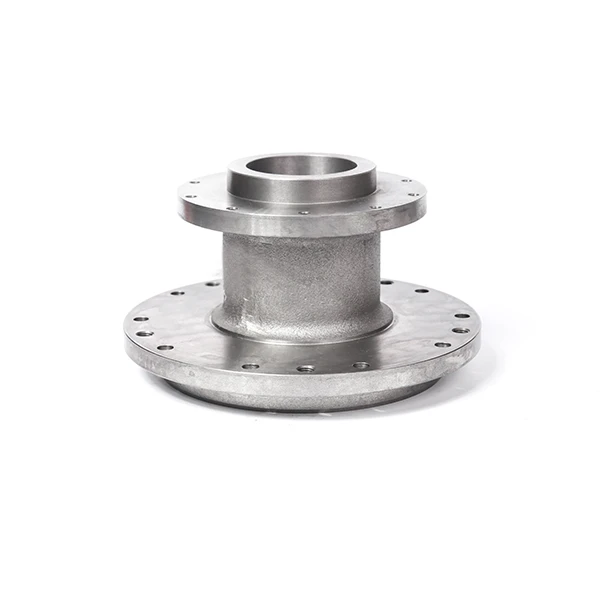Mobile:+86-311-808-126-83
Email:info@ydcastings.com
steel foundries
The Role of Steel Foundries in Modern Industry
Steel foundries play a pivotal role in the manufacturing sector by producing essential steel components used in various industries. These facilities specialize in casting, the process whereby molten metal is poured into molds to form desired shapes and sizes. This technique is foundational for creating complex parts that are otherwise difficult or impossible to manufacture through traditional machining processes.
Historical Perspective
The origins of steel foundries can be traced back to ancient civilizations, where blacksmiths would forge metal tools and weapons. Over the centuries, the techniques evolved, leading to the establishment of more sophisticated foundries during the Industrial Revolution. This era marked a significant shift in the production capabilities, as steam engines and machinery required durable steel parts in mass quantities. The modern steel foundry has emerged as a high-tech environment, utilizing advanced materials and methods to meet the demands of contemporary manufacturing.
Processes Involved in Steel Foundries
The general process in a steel foundry begins with the selection of raw materials, primarily steel scrap or ingots, which are melted in electric arc furnaces or induction furnaces. Once the steel reaches the appropriate temperature, it can be alloyed with other metals to enhance its properties. The molten steel is then poured into molds that define the shape of the final product.
After cooling, the castings are removed from the molds and may undergo further processing, such as machining, heat treatment, and surface finishing. Quality control is critical in this stage, as defects can severely compromise the integrity of the final products. Advanced techniques such as non-destructive testing (NDT) are employed to ensure that each casting meets strict industry standards.
Applications of Steel Castings
Steel castings produced by foundries serve a multitude of industries. From the automotive sector, where components like engine blocks and gears are crucial for vehicle performance, to the construction industry, where steel beams and brackets support structural frameworks, the applications are vast. Additionally, the energy sector relies on steel foundries for manufacturing turbine casings and other critical equipment used in power plants.
steel foundries

Furthermore, the aerospace industry uses steel castings for components that must withstand extreme conditions while maintaining safety and reliability
. This diversity in applications underscores the importance of steel foundries in the supply chain of modern manufacturing.Environmental Considerations
Despite their significant contributions to industrial development, steel foundries face challenges related to environmental concerns. The energy-intensive nature of melting steel and the emissions produced during the casting processes contribute to the carbon footprint of these facilities.
In response, many foundries are adopting more sustainable practices. This includes recycling scrap metal, improving energy efficiency, and utilizing cleaner technologies. The transition towards electric furnaces is also gaining traction, as they can be powered by renewable energy sources, thus reducing reliance on fossil fuels. Such efforts not only benefit the environment but also enhance the foundries’ competitiveness in a market increasingly driven by sustainability.
The Future of Steel Foundries
Looking ahead, the future of steel foundries appears promising, driven by technological advancements and growing demand in emerging markets. Innovations such as 3D printing and digitalization are transforming traditional practices, making them more efficient. Smart manufacturing technologies, including IoT and AI, allow for real-time monitoring and optimization of production processes.
As industries continue to evolve, steel foundries must adapt to new challenges while maintaining the quality and reliability of their products. The integration of smart techniques could lead to improved operational efficiency, lower costs, and enhanced product performance.
In conclusion, steel foundries are crucial to the modern economy, creating the components that underpin virtually every sector. By embracing sustainable practices and technological innovations, these facilities can ensure their relevance and resilience in an ever-changing industrial landscape. The continued development of steel foundries will undoubtedly shape the future of manufacturing, facilitating the production of high-quality steel products that meet the demands of a complex and dynamic world.
-
Why Is Choosing the Right Motor Housing Critical for Engine Performance?NewsJul.18,2025
-
Which Impeller Types Best Optimize Your Pump’s Efficiency?NewsJul.18,2025
-
Optimize Maintenance Efficiency with Durable Oil Catch SolutionsNewsJul.18,2025
-
Maximize Pump Performance with Precision-Engineered ComponentsNewsJul.18,2025
-
Elevate Industrial Flow Systems with Precision-Engineered ComponentsNewsJul.18,2025
-
Boost Durability and Functionality with Precision Power CastingsNewsJul.18,2025











